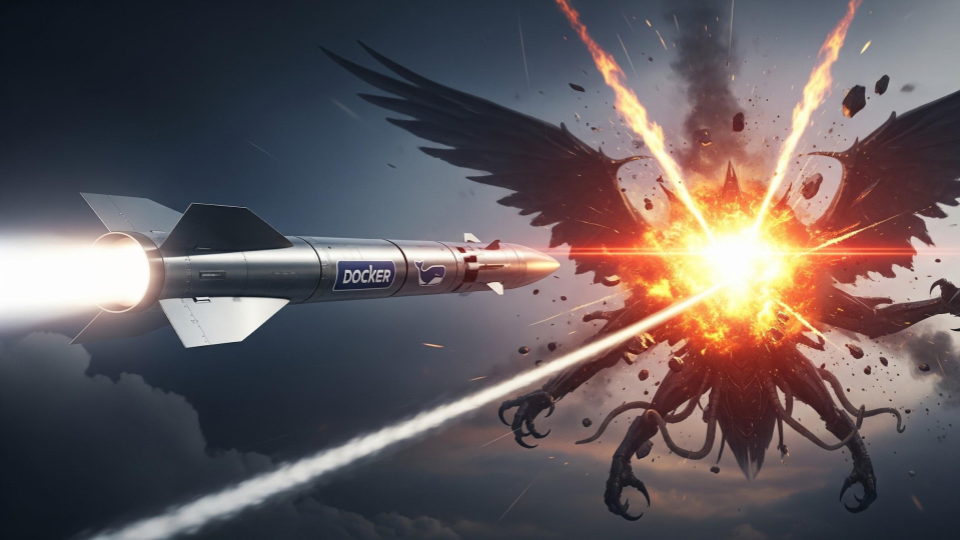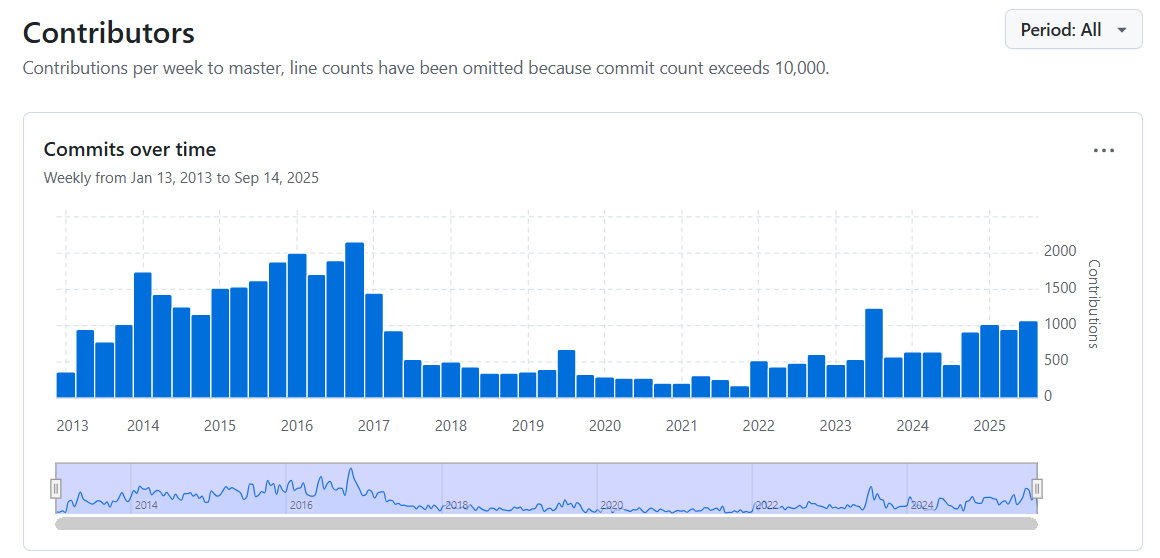3 Docker myths shot down in flames

In this blog post, where we are going to debunk three unjustifiable, indefensible, unwarranted, inexcusable, and groundless myths about Docker.
Docker may refer to more than one thing.
The company (Docker, Inc.), the container registry (Docker Hub), the desktop application (Docker Desktop), the container runtime (Docker Engine), and even Docker images, are referred to as Docker in different contexts.
In this post Docker refers to the Docker Engine - the container runtime that powers many web and enterprise applications.
Myth #1: Docker is dead
The Docker Engine is alive, well, and in active development.
The Docker Engine is maintained by Docker Inc. and a vibrant open-source community under the Moby project umbrella.
As you can see from this graph, the Moby project continues to receive a steady stream of commits. In the last three months alone (July to September, 2025) the project has received 1000+ commits.

This release notes page also attests that the Docker Engine gets regular updates with new features, performance improvements, and security patches. For instance, in 2024 and 2025 alone, we've seen several major and minor releases, demonstrating a healthy and ongoing development process.
Far from being a relic, Docker Engine is an evolving tool that a large number of developers are using and contributing to.
Myth #2: Kubernetes dropped docker
This is one of the most persistent and misunderstood myths.
The truth is more nuanced and interesting. And it's also a proof of Docker company's (Docker Inc.) commitment to open-source.
A few years ago, Kubernetes deprecated the "dockershim," a piece of code that allowed it to communicate directly with the Docker Engine. This led many to believe Kubernetes had "dropped" Docker. Here’s what actually happened:
- Docker created the standard: The Docker Engine is a complex piece of software. Kubernetes only needed the core part—the container runtime.
- Docker donated the core: Recognizing this need, the team at Docker extracted its core runtime component, named it
containerd, and donated it to the Cloud Native Computing Foundation (CNCF) in 2017. This act paved the way for a standardized container ecosystem. - Everyone adopted it: Kubernetes adopted containerd as one of its standard container runtimes. And guess what? The modern Docker Engine also uses
containerdunder the hood!
So, Kubernetes didn't abandon Docker. Instead, it adopted a standard that Docker itself created and open-sourced. It was a move towards standardization, not a rejection.
Myth #3: DevOps teams are dropping Docker for Kubernetes
This myth wrongly pits two different technologies against each other.
It's like saying, "Drivers are dropping cars in favor of trucks." It doesn't make sense because they solve problems at different scales.
- Docker Engine is for running and managing containers on a single host. If you want to move beyond a single host, you can certainly do so by using any load sharing mechanism. But, it's not the responsibility of Docker Engine.
- Kubernetes is a container orchestrator for running and managing containers across a cluster of multiple hosts. It has features and functions to run your software application distributed across these hosts.
Choosing one over the other depends entirely on your needs.
✅ Use Kubernetes if: You are building a large-scale application with hundreds of microservices that need to be distributed across a pool of servers. Kubernetes provides powerful features like auto-scaling, self-healing, and service discovery. This power comes with significant complexity and operational overhead, but it's worth it for large, distributed systems.
✅ Use Docker Engine if: You have a simpler application, are running services on one or a small number of hosts, or need a straightforward way to containerize your development and testing environments. It's simple, powerful, and doesn't carry the overhead of a full orchestration platform.
Choosing Kubernetes just because it's "newer" or "bigger" for a project that doesn't need its scale is a common mistake that leads to over-engineering and unnecessary complexity.
Don't believe the hype
You’ve probably seen the headlines: "Docker is Dead," "Why We Moved Away from Docker," and so on.
Some of these are pure clickbait.
Others stem from a genuine misunderstanding of what Docker Engine is.
Docker is a foundational skill for any DevOps engineer. The Docker Engine remains the de-facto standard for building containers, while tools like Docker Hub and Docker Desktop are indispensable parts of the developer workflow.
So, the next time you see a headline proclaiming the end of Docker, remember the reality: it's a mature, actively developed technology that works with the ecosystem, including Kubernetes, to solve real-world problems.
Keep learning it, keep using it, and keep building amazing things.

